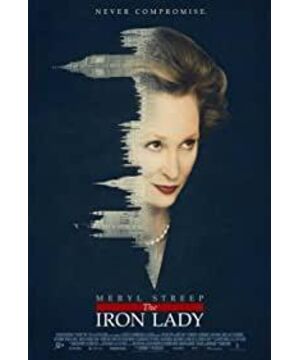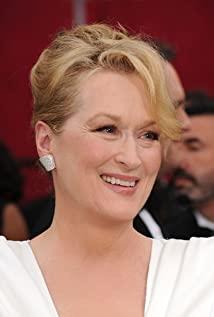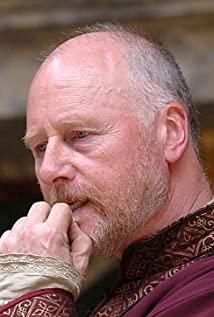One of the important reasons why a biographical film is so attractive is that it gives the audience an illusion: you can learn about history, the life of an important person, and his soul through a two-hour screen tour. Sometimes the director may not have such ambitions or ability to reconstruct history and great men in the movie. Only a few great biopics will make the audience think more and explore the true impulse of history after watching them, instead of just getting "Oh, It turns out that this person feels like this—for example, "Citizen Kane", such as "Lawrence of Arabia", such as "The Moment". "Iron Lady" with former British Prime Minister Margaret Thatcher as the protagonist is such a movie: it attempts to interpret a "real" Margaret Thatcher under the title "Iron Lady", but after watching the film , We still can’t confirm to what extent the Thatcher on the screen matches the real Thatcher. This is a director's Thatcher, a Meryl Streep's Thatcher, but surely, it's not Thatcher's thatcher. On November 19, the film was screened on a small scale at the "China-US Culture and Art Forum". During the exchange session with Streep, an Englishman stood up and said that he was one of those young people who threw things at Mrs. Thatcher’s car and shouted "Thatcher get out". He still doesn’t. I agree with Thatcher's propositions and actions, but the film gave him a new understanding, thanks to Streep's wonderful performance. To our surprise, the film started with Thatcher, who was deteriorating after retirement, and flashed back to tell how this strong political figure got here. This structure has set the tone of the entire film: the memorable, personal, gentle and lost "Iron Lady". The old iron lady is neurotic, sensitive, and even sentimental. She often has hallucinations of seeing her deceased husband, and she is full of maternal yearnings for her children. Streep’s performance has reached its level, and it’s really comfortable to play such an old man (she can make you forget Streep completely, just feel that what you see on the screen is Thatcher), but from the perspective of the effect , It is far worse than that of Margaret Thatcher, who walked from youth to prime in the memory paragraph. When she first argued with political opponents among parliamentarians, when she decided to go to war with Argentina, that kind of shock of historical figures was shown on the screen, and you were fully engaged. "Iron Lady" tried to emotionally treat Margaret Thatcher, which was called "unsympathetic" by the media at the time, but it just lost her most important qualities: controversy and complexity. What we saw was an almost perfect woman: from the daughter of a grocer to politics step by step; her political views were reconciled to become a father The proclaimed statement about "British people need to do practical things and need to be self-reliant"; the light on her has turned into an inspirational legend of "I fight every day". The director of the film, Felida Lloyd, had only filmed a musical film "Mamma Mia" before. This female director filled the film with a delicate and gentle atmosphere, but also lost the most attractive sense of power in a biographical film. . The repeated flashbacks and flashbacks make the film quite modern, but at the same time it loses the fluency of the narrative. Compared with the high concentration and dramaticity of "The King's Speech", "Iron Lady" seems a bit trivial and light. "Beware of your thoughts, because thoughts will become words; beware of your words, because words will become actions; beware of your actions, because actions will become habit; beware of your habits, because habit will become character; and Character will become your destiny.” This is a passage from the middle-aged and old Margaret Thatcher to her doctor in the film. We have seen Thatcher’s character, her habits, her words, and her thoughts in "Iron Lady", but why she became Mrs. Thatcher can only stay at the one-sided interpretation provided by the director—— There is no content of the Sino-British negotiations, and the collection of "poll tax" is also mentioned. To the audience who didn't know Margaret Thatcher, the screen was just an old woman who had struggled and succeeded and finally died alone. In the film, when Dennis Thatcher proposes to young Margaret, Margaret says to him very seriously: "I don't want to be a woman who washes dishes at home to death." But the end of the film In one scene, Mrs. Thatcher in her later years slowly finished her coffee, staggered to the sink, washed the coffee cup by herself, and then turned and left. This huge paradox seems to be the contradiction of "Iron Lady": Is it Margaret as a Lady or Thatcher as an Iron Lady? This is still a problem. Lady's Thatcher? This is still a problem. Lady's Thatcher? This is still a problem. Lady's Thatcher? This is still a problem. Lady's Thatcher? This is still a problem.
View more about The Iron Lady reviews











